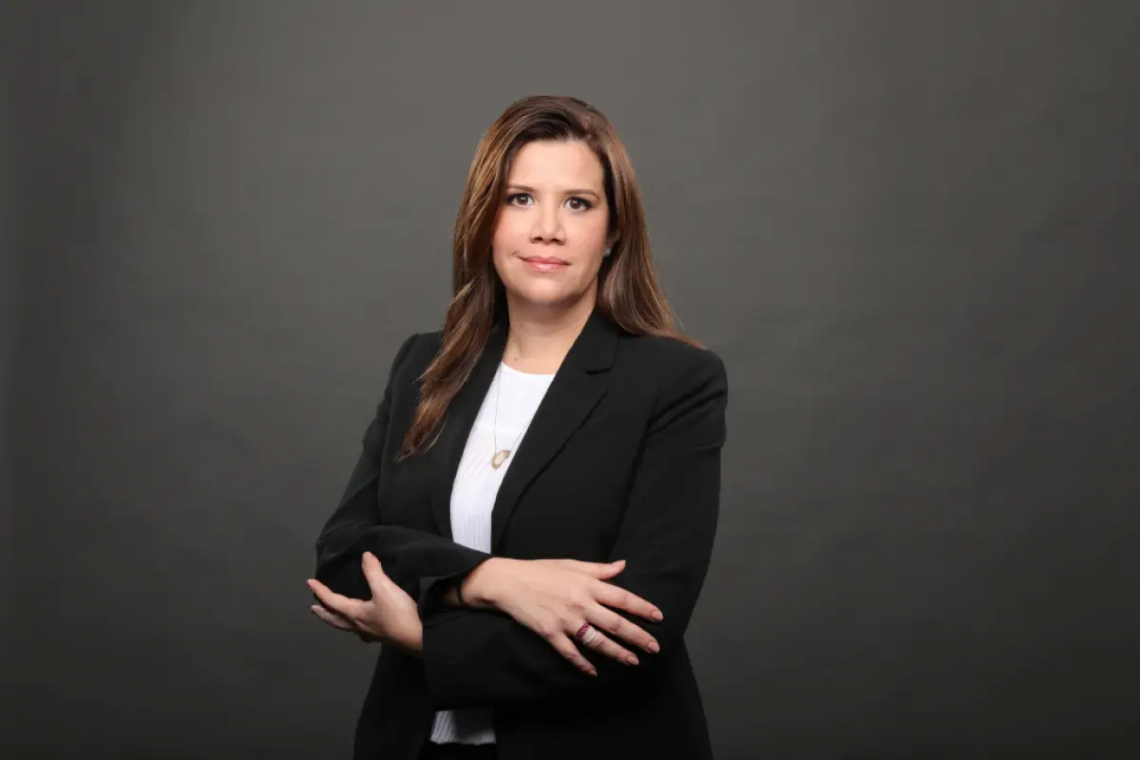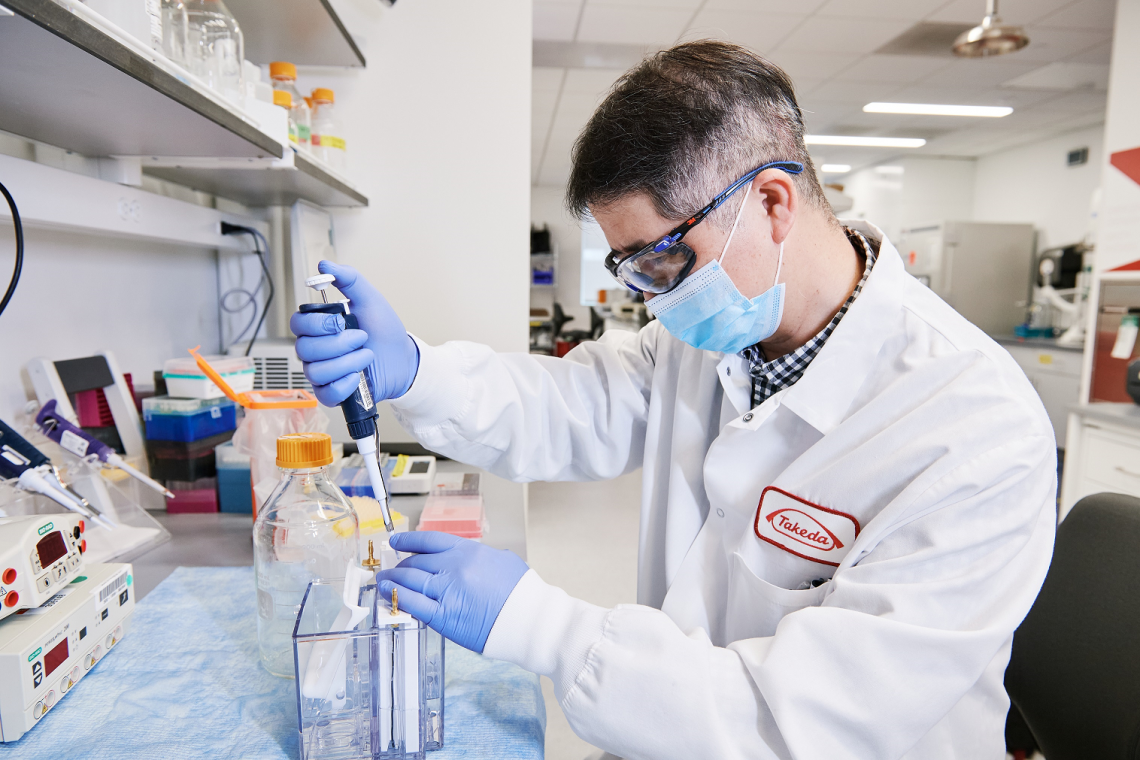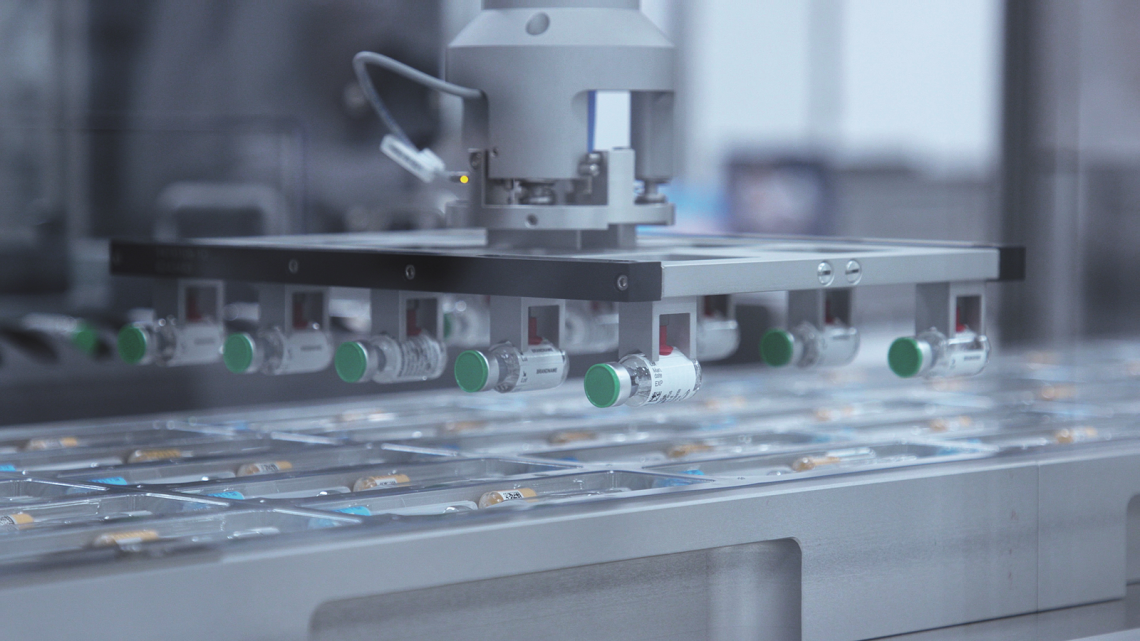Dengue vaccine: New EU approval accelerates quest for global protection
Renata Campos, President of the Growth & Emerging Markets Business Unit
Asia carries 70% of the world’s dengue burden; a viral infection transmitted to humans through mosquitos, causing symptoms that range from the sub-clinical and flu-like to a potentially deadly form that involves bleeding and organ impairment.
The COVID-19 pandemic clearly demonstrated how quickly and easily infectious diseases can travel across a highly connected globe. Now, to prevent dengue in individuals four years and older in the European Union, the European Commission has granted Takeda Pharmaceutical Company, headquartered in Japan, market authorization for their vaccine QDENGA® (Dengue Tetravalent Vaccine [Live, Attenuated]) (TAK-003).
Asia Research News spoke with Renata Campos, President of the Growth & Emerging Markets Business Unit (GEM-BU) which covers APAC including India, Latin America and the larger Middle East region, about the significance of this vaccine for Europe and the rest of the world.
What are the threats of dengue to the European population if dengue management cannot be improved?
Renata Campos: Dengue directly threatens more than 26 million people from Europe who typically travel to endemic regions each year for holidays and visiting friends and family.1The disease is also endemic in most of the European overseas territories located in tropical areas, such as Guadeloupe in the Caribbean and the islands of Réunion and Mayotte in the Indian Ocean. These factors have led to local transmission in non-endemic areas in continental Europe, including France, Italy, Germany and Spain. This makes it increasingly critical for us to provide European citizens with the necessary tools to support the fight against dengue.
Globally, the incidence of dengue has risen eight-fold in the past 20 years, and continues to rise, threatening about half the world’s population with a risk of infection in more than 125 countries2. In 2019, the World Health Organization designated dengue as one of the top ten threats to public health.
What are the threats to Asia and other regions that are significantly more affected by dengue? How can dengue management be improved there, in both low- and high-income countries?
Renata Campos: The Americas, South-East Asia and Western Pacific regions are the most seriously affected by dengue, with Asia representing about 70% of the global burden of disease. In many dengue-endemic countries across Asia and Latin America, severe dengue has become a leading cause of hospitalization among children and adults. This can place significant strain on healthcare resources.
The impact also extends to local economies, leading to individuals and families facing unexpected costs related to care and missed work and school. Regardless of a country’s income level, local governments can struggle with the expense and burden of challenges, including the additional personnel, equipment and supplies needed for vector control and surveillance.
What is the significance for Takeda, and for public health in general, of the approval for the vaccine in Europe, given that dengue is most prevalent in other regions.
Renata Campos: Our TAK-003 vaccine is currently the only dengue vaccine approved in the EU for broad use, regardless of previous dengue exposure. The EU approval is particularly significant for Takeda’s Growth & Emerging Markets region,as it signals confidence to regulatory bodies around the world who will look to leverage the assessment by the European Medicines Agency (EMA) as they review submissions in their own countries.
Critically, our dengue vaccine was evaluated through the EMA’s first-ever parallel assessment of a medicinal product for use not only in the European Union, but for countries outside of it through the EU medicines for all (EU-M4all) procedure, including many dengue-endemic countries across Latin America and Asia.
Can you tell us about the research and development path that has led to the EMA approval?
Renata Campos: The approval of TAK-003 was supported by 19 clinical trials within dengue endemic and non-endemic countries, including more than 28,000 children, adolescents and adults. Our regulatory filing package included more than four years of follow-up in our pivotal phase 3 trial. In this trial, our vaccine prevented 80.2% of symptomatic dengue cases 12 months after vaccination and 90.4% of hospitalizations 18 months after vaccination. Overall efficacy was maintained through 4.5 years after vaccination, regardless of previous dengue exposure. Sustained vaccine efficacy against symptomatic dengue was 61.2%, with 84.1% efficacy against hospitalized dengue. No important safety risks have been identified to date.
The EMA approval is a result of years of unwavering commitment and collaboration, and we also remain devoted to help defending individuals living in dengue-endemic areas.
What is the current situation regarding approvals elsewhere? What comes next in trying to get wider approval and use, especially in the Asia/Pacific/Growth & Emerging Markets region?
Renata Campos: TAK-003 has already been approved in Indonesia, with plans to launch in 2023, and regulatory reviews and filings continue to progress in other dengue-endemic countries in Latin America and Asia. Our efforts will be especially critical within growth and emerging markets regions, which represent 65% of the global population. We look forward to accelerating approvals and subsequently ensuring access to the vaccine within these regions.
Where do you see the pressing need for further investment and research and development in addressing the challenges of dengue?
Renata Campos: Reducing the global burden of disease requires a multifactorial approach. Recent advances in vector control are a source of optimism for dengue prevention, but scaling these over large geographic areas remains challenging. I believe that all dengue prevention methods, including vector control methods, are important and should be prioritized. This requires integrated dengue prevention strategies that include both vaccination and vector management, alongside other interventions such as surveillance, community engagement, diagnosis and case management.
What other challenges are you prioritising?
Renata Campos: In addition to our dengue vaccine candidate, we are developing a Zika vaccine candidate (TAK-426), as well as partnered programs for COVID-19 and norovirus.
Fragmentation within Growth & Emerging Markets regions often means that remote populations may struggle to access timely and effective care. Substandard healthcare infrastructure also limits reliable diagnoses and the follow-up care patients may need. We are focusing our efforts on enhancing our Access to Medicines (AtM) efforts to support patients within Growth & Emerging Markets regions.
Accelerating patient access to our innovative medicines and vaccines is ingrained in our company values. At Growth & Emerging Markets Business Unit, we seek to address the region’s diverse patient - and country-specific needs and challenges via our highly differentiated regional strategy.
Has the development of the dengue vaccine and the process of seeking approvals offered any lessons to help other projects in the future?
Renata Campos: One key takeaway of our vaccine journey is the importance of large and geographically diverse clinical trials to best reflect the patients we serve. I firmly believe our industry has an important role to play in providing transparentand readily understandable information on the risks of dengue and the benefits of our vaccine. This includes working closely with national agencies and the medical community, including healthcare professionals and advocacy groups, to help drive awareness and confidence not only in relation to dengue, but to vaccines in general.
Takeda Pharmaceuticals has 31 manufacturing facilities across Asia, Europe and the United States.
About Renata Campos, President – Growth & Emerging Markets (GEM) Business Unit, Takeda
Renata was appointed the President for GEM BU as of April 1st, 2022 and is currently based in Singapore. Renata has 17 years’ experience in the pharmaceutical industry and joined Takeda in 2005 as senior product manager. In September 2013, she took over as Takeda General Manager in Turkey, where she led the local operational transformation through the acquisition of a local company. From March 2017 to January 2019, Renata was Area Head Latin America (LATAM) and President of Takeda in Brazil, responsible for the operations in seven countries, representing the biggest area across Emerging Markets and growing the business sustainably across relevant markets. She holds a degree in Pharmacy-Biochemistry, University of Sao Paulo; and an Executive MBA, Business School, Sao Paulo.
About Takeda’s Growth & Emerging Markets Business Unit
Headquartered in Singapore, GEM BU has presence in around 50 geographies across Asia Pacific, South America, and the Middle East & Africa, representing approximately 5.1 billion people, or around 65% of the world’s population. These countries and territories are highly dynamic, with growing populations, evolving healthcare systems and unique access barriers. GEM BU’s ambition is to address the region’s diverse patient- and country-specific needs and challenges through an ‘Access-First’ and innovation focused strategy, prioritizing investments that maximize access to innovation via approaches best suited to unmet medical needs and local healthcare environments.
1. Travel data from: UNWTO. Yearbook of Tourism Statistics, Data 2014-2018. 2020.
2. World Health Organization. Factsheet. Dengue and Severe Dengue. January 2022. Retrieved August 2022.
You may also be interested in the following
The story behind the new dengue vaccine - An interview with Prof Emeritus Dr. Sutee Yoksan of Thailand's Mahidol University, whose early research led to the new Takeda Pharmaceutical vaccine.
Press release (9 December 2022) - Takeda’s QDENGA®▼ (Dengue Tetravalent Vaccine [Live, Attenuated]) Approved for Use in European Union
Press release (23 August 2022) - Takeda’s tetravalent dengue vaccine (TAK-003) receives first global approval for use in Indonesia without need for pre-vaccination testing






